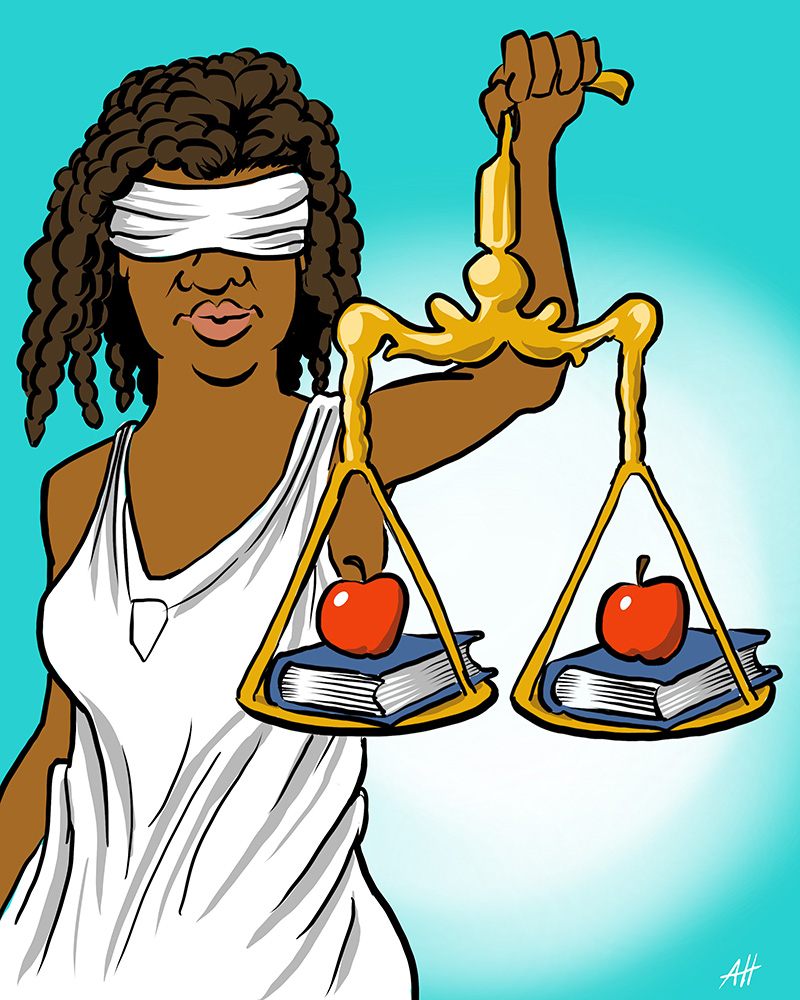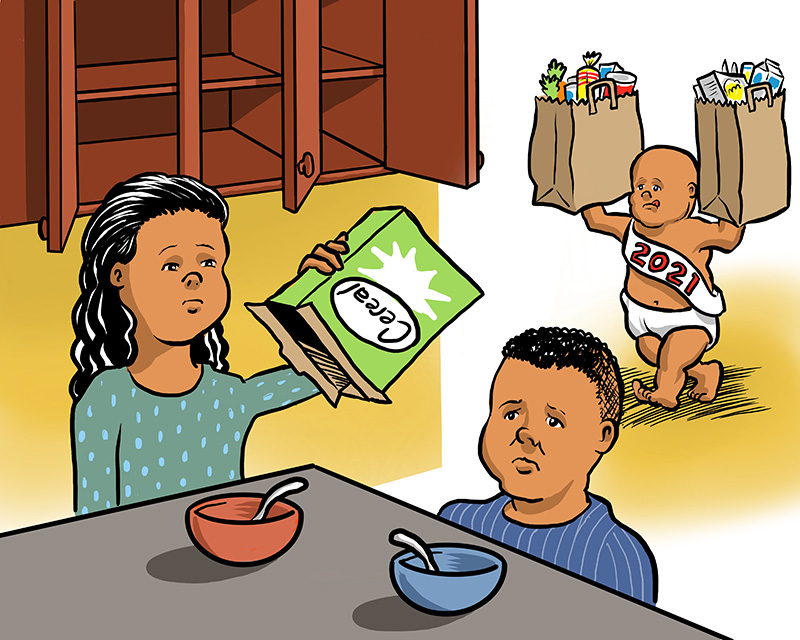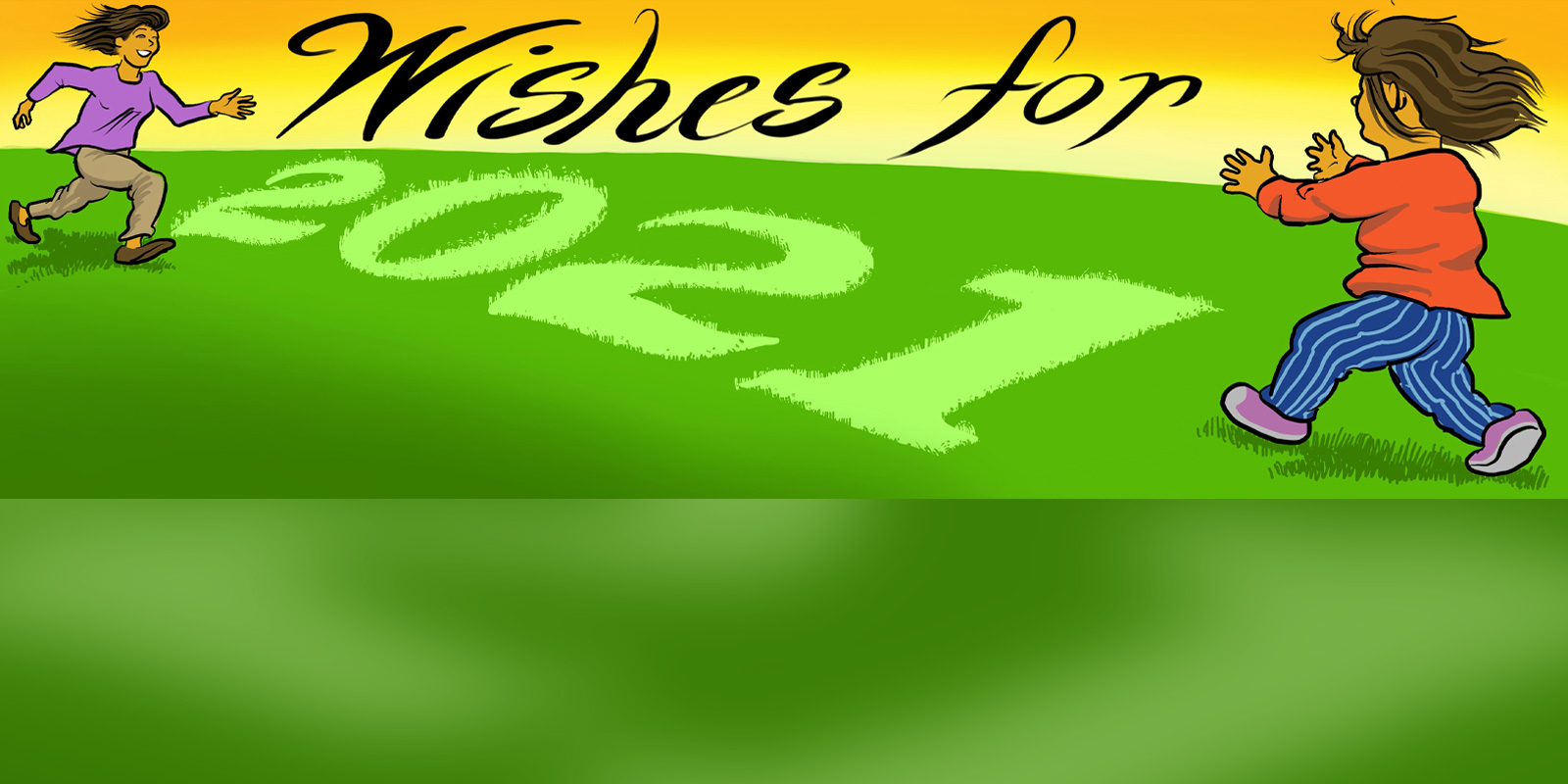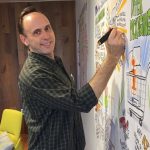Despite working in captivity for most of 2020, we continued to speak with top Early Learning researchers, educators, nonprofit and business leaders, and policymakers all year long. As we look to a new year of great promise, we’ve asked them about their biggest wishes for 2021. Here are their responses.
 “My hope for 2021 is that the conversations and journey will continue regarding racial injustices happening in all places, including in early learning, and that there will be concrete legislative actions to address racial trauma and bias. I hope that 2021 brings the recognition of the role of women, especially Black women, as foundational to the transformation of early care and education systems, programs and services.”
“My hope for 2021 is that the conversations and journey will continue regarding racial injustices happening in all places, including in early learning, and that there will be concrete legislative actions to address racial trauma and bias. I hope that 2021 brings the recognition of the role of women, especially Black women, as foundational to the transformation of early care and education systems, programs and services.”
—Iheoma U. Iruka, Ph.D., Research Professor, Department of Public Policy, Founding Director, Equity Research Action Coalition at FPG Child Development Institute, University of North Carolina at Chapel Hill (read Racial Equity for Early Childhood Professionals)
“My hopes for 2021 are the following: (1) In policy decision-making, I’d like to prioritize getting relief to households with young children, who are at the most vulnerable time of their lives in terms of brain development. The longer we wait, the bigger the price we’ll pay as a society. (2) I’d like to see funds not only put into material relief (which is critical to address hunger, safe housing, medical care and child care), but also into supporting the mental health needs of young children and parents, and into the childcare system and workforce. (3) I’d like us as a nation to attend to the fact that structural inequalities based on race/ethnicity, income and family structure (which existed before the pandemic) have grown wider and that are putting millions of children at enhanced risk of diminished health and well-being across their lifespan.”
—Philip A. Fisher, Ph.D., Philip H. Knight Chair & Professor of Psychology, Director, Center for Translational NeuroScience, University of Oregon (read about the Rapid Assessment of Pandemic Impact on Development)
“I hope we will see legislation in Florida in 2021 that prioritizes children. We are taking aim at enhancing quality early education for all children and at ensuring robust supports for families with young children because we cannot transform the lives of children without ensuring the needs of the adults who care for them are met.”
—Madeleine K. Thakur, Chief of Staff, The Children’s Movement of Florida (read about this organization’s partnership with Waterford Upstart and their Bosses for Babies initiative)
—Rebecca Berlin, Chief Learning Officer at Start Early and Principal Investigator of the National Center on Parent, Family and Community Engagement (NCPFCE)
“In 2021, we hope to see an end to family separation of all forms, including the harmful separation of children from their parents by child welfare systems. As we reopen our schools and other public spaces, we hope that children, youth and families will feel supported by their communities and not monitored or surveilled. This has been a remarkable time for everyone, and we hope that 2021 is a time to commit financing, policies and practices to make sure children and youth are safe and supported in their families and communities.”
—Alan Dettlaff, University of Houston Graduate College of Social Work; and Kristen Weber, Center for the Study of Social Policy (read about the upEND movement)
“My greatest wish for 2021 is that we don’t forget the lessons from 2020—from the pandemic, the unjust racial relations, the political strife, the quarantines, as well as virtual learning and working. Let’s remember what these situations taught us about the sometimes-needless busyness of our lives, about the importance of true families and friends, about how we work best, about what real teaching and learning could be, and about the importance of belonging and equity in every facet of our lives. Let’s abide by these lessons from 2020 as we move into 2021 and beyond.”
—Ellen Galinsky, Chief Science Officer, Executive Director, Mind in the Making, Bezos Family Foundation (read 10 Years of Keeping the Fire Burning in Children’s Eyes and watch Galinsky discuss concerns about new research study results regarding long-term effects of remote learning on WGN’s NewsNation Now).
“In 2021, it is my sincere hope that we will reach the other side of this pandemic with new policies and an infrastructure that creates the conditions for children and families to thrive. Child care will be saved, paid family and medical leave will be made permanent nationwide and families will be spared economic ruin.”
—Dr. Myra Jones-Taylor, Chief Policy Officer, ZERO TO THREE (read Separation and Detention of Immigrant Children)
 “If this year has taught us anything, it’s how much we need to be together—and how critical the playground is for kids and their families to do just that. Unfortunately, access to safe places to play is an opportunity that many kids didn’t have before the pandemic, and won’t have when the world opens up again. No kid deserves to experience playspace inequity—a lack of places to play where kids live and learn, due to their ZIP code or color of their skin. We can change this, by bringing communities together, and creating more incredible playspaces for the kids impacted the most. Our hope for 2021 is to make sure kids have spaces where they can connect, grow, and feel like they belong.”
“If this year has taught us anything, it’s how much we need to be together—and how critical the playground is for kids and their families to do just that. Unfortunately, access to safe places to play is an opportunity that many kids didn’t have before the pandemic, and won’t have when the world opens up again. No kid deserves to experience playspace inequity—a lack of places to play where kids live and learn, due to their ZIP code or color of their skin. We can change this, by bringing communities together, and creating more incredible playspaces for the kids impacted the most. Our hope for 2021 is to make sure kids have spaces where they can connect, grow, and feel like they belong.”
—Amy Levner, Vice President, Communications and Marketing at KABOOM! (read Tackling the Play Deficit and Mind Field, which explores playground deserts, among other “Play” topics.)
“In 2021, my hope is that the families with babies and young children who are suffering the most from the pandemic receive the material and moral support they desperately need our from our communities and our nation.”
—Matthew Melmed, Executive Director, ZERO TO THREE (read our Top Takeaways from the Early Childhood Coalitions Panel held by this organization in the fall)
“It is my sincerest hope that we cultivate a culture of kindness and that we honor the needs of families across the country. This means working to meet them where they are, celebrating everything they make possible for their kids and doing everything we possibly can to help them provide their children with the best possible start in life.”
—Jane Park, Director, Too Small to Fail, the early childhood initiative of the Clinton Foundation (download her organization’s new “Let’s Share Kindness” toolkit with the Born This Way Foundation)
 “My hopes are that the inspiring collaborations we’ve seen at First Book—and across the sector—to support educators and children in need over the course of the pandemic continue to grow. We will be challenged by COVID-19 long after the vaccines have been distributed—so we must recommit ourselves to answer the call from the increasing number of people who desperately need our help. We need to hold hands to address these growing economic disparities and the racism that plagues us—so that more children and families can realize a better future. I also hope that over the course of 2021 we can safely reconvene with our friends and co-workers, educators and kids. We have a lot of hugs and stories to share with each other.”
“My hopes are that the inspiring collaborations we’ve seen at First Book—and across the sector—to support educators and children in need over the course of the pandemic continue to grow. We will be challenged by COVID-19 long after the vaccines have been distributed—so we must recommit ourselves to answer the call from the increasing number of people who desperately need our help. We need to hold hands to address these growing economic disparities and the racism that plagues us—so that more children and families can realize a better future. I also hope that over the course of 2021 we can safely reconvene with our friends and co-workers, educators and kids. We have a lot of hugs and stories to share with each other.”
—Kyle Zimmer, President, CEO and Co-founder, First Book (read more about Zimmer’s work)
“I am hopeful that racial equity has risen to the surface of our national dialogue again, and that each time it brings more and more impactful change. I am hopeful that many families have, despite the incredible challenges of the year, found ways to bond and build shared stories that build relationships. For me, personally, I am hopeful that my new habits of daily walks and letter writing continue into the coming years!”
—Marley Jarvis, Ph.D., Institute for Learning & Brain Sciences, University of Washington (read The Story Behind a Prizewinning Video on Preschool Behavior)





